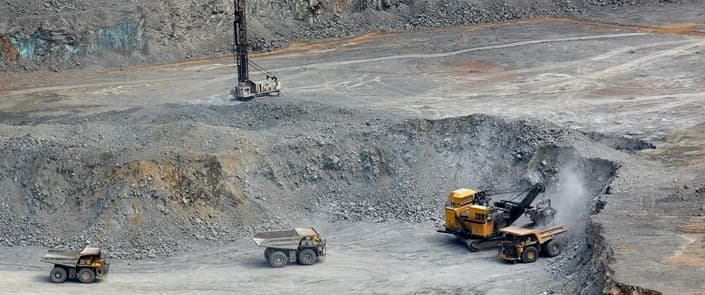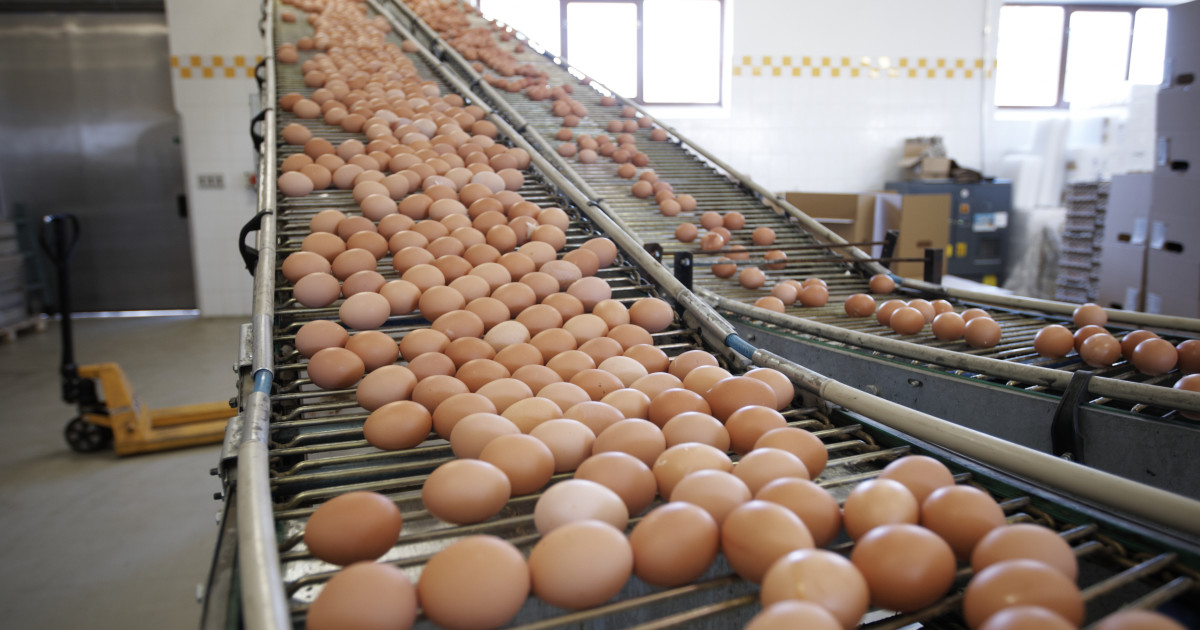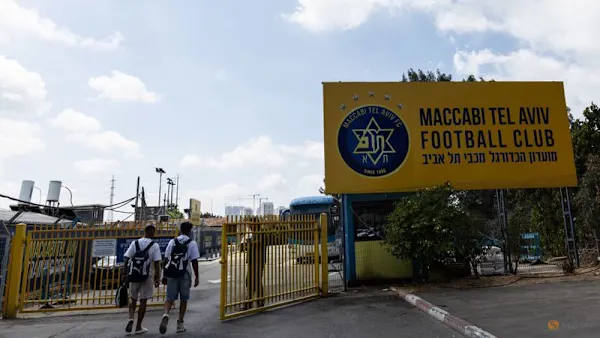Copyright OilPrice

Amid a global race to secure critical minerals outside China’s control, U.S. rare earth developer REAlloys Inc. has forged a strategic alliance with Japan Organization for Metals and Energy Security (JOGMEC), the government agency under Japan’s Ministry of Economy, Trade and Industry (METI) charged with safeguarding the nation’s industrial supply chains. The agreement, outlined in a Memorandum of Understanding (MoU), sets out a framework for joint development, technology transfer, and industrial-security cooperation, according to Blackboxstocks Inc. (NASDAQ: BLBX), which is currently in the process of merging with REalloys. The pact marks JOGMEC’s first formal engagement with an American rare earth producer. It also signals closer alignment between Washington and Tokyo on resource independence. Both governments have identified rare earths and advanced magnets as essential for defense, energy, and semiconductor supply chains that are increasingly exposed to Chinese dominance. JOGMEC has been one of the world’s most active catalysts for diversification, financing projects from Australia to Africa to lessen market concentration. The REAlloys partnership extends that effort to North America’s resource base and manufacturing capacity. Focused Collaboration on Advanced Magnet Supply Under the MoU, JOGMEC, acting on behalf of METI, will facilitate the licensing and transfer of Japanese separation and magnet-fabrication technologies to REAlloys’ North American facilities. The initiative targets the rapid scale-up of high-performance magnets such as neodymium-iron-boron (NdFeB) and samarium-cobalt (SmCo), which are materials central to defense systems, EVs, and chip manufacturing. Both sides will also examine JOGMEC-supported financing for REAlloys’ vertically integrated supply chain, which includes upstream mining assets in Saskatchewan, a midstream separation complex in Saskatoon, and planned downstream magnet production in Ohio. Leonard Sternheim, REalloys’ chief executive, said the collaboration unites two complementary strengths. “Japan brings unparalleled magnet and processing technology; North America brings scale and resources,” he said. “Together, we are accelerating regional self-sufficiency in critical materials.” Structured Access and Allied Security The agreement provides for structured offtake arrangements guaranteeing reliable long-term supply of rare earth alloys and magnets to Japanese manufacturers. In return, REAlloys will dedicate part of its scandium and yttrium output from Hoidas Lake and secondary monazite sources to Japan, while maintaining its supply to U.S. defense and energy programs. Hiroshi Kubota, executive vice president of JOGMEC, described the accord as a model for allied resilience. “This partnership strengthens the foundation of economic security among trusted partners,” Kubota said. “By linking Japan’s technology and North America’s resources, we enhance global supply stability for materials essential to the future economy.” The collaboration takes shape amid intensifying global competition for strategic minerals and renewed pressure to diversify away from China, which continues to dominate more than 80 percent of global rare earth refining and magnet production. Beijing’s 2023 and 2024 export restrictions on gallium, germanium, and rare earth processing technology have heightened supply insecurity across allied economies, accelerating government-backed efforts in both Washington and Tokyo to localize production. Within this environment, the REalloys-JOGMEC partnership stands as a coordinated industrial response, linking Japan’s processing expertise and the United States’ raw resource base to build a secure, transparent alternative supply chain. Both sides said the agreement also opens the door to further cooperation, including the application of JOGMEC’s seabed resource technologies and new joint-research initiatives focused on long-term industrial resilience and allied strategic autonomy. Other Companies Making Moves in the Critical Resources Race Vale S.A. (NYSE: VALE) is one of the world's largest diversified mining companies, with a core business in iron ore, but it is also a significant global producer of key battery metals, notably nickel and copper. As a massive, established producer of these base metals, Vale's output naturally includes byproducts like cobalt, which is often found in nickel ores. The company's operations span several continents, making it a pivotal supplier to global industrial and clean energy sectors. The company's immense scale in nickel production is its most critical contribution to the energy transition, as nickel is a high-demand component in many electric vehicle battery chemistries. Vale is actively positioning its high-quality nickel as a preferred source for the electric vehicle supply chain, aiming to meet the strict environmental and traceability standards required by Western automakers. Vale is currently focused on enhancing and expanding its high-grade nickel and copper assets, particularly in Canada and Brazil. It continues to refine its business to meet the specific requirements of the battery market, including investments in downstream processing capabilities to convert raw nickel materials into the high-purity sulfates required by battery cathode manufacturers. Energy Fuels Inc. (NYSE American: UUUU) is the leading U.S. producer of uranium, but in a strategic pivot, it has leveraged its unique White Mesa Mill in Utah—the only conventional uranium mill in the country—to become a key player in domestic rare earth element (REE) processing. The company processes monazite sand, a feedstock containing REEs like NdPr, positioning it as an emerging, high-potential participant in the rare earth supply chain. The company’s critical role lies in addressing the processing bottleneck that has historically crippled the U.S. rare earth sector. While some mining occurs domestically, the necessary chemical separation and purification of REEs has been almost entirely controlled by foreign entities. By producing a mixed rare earth carbonate at White Mesa, Energy Fuels is recreating a vital midstream capability in the U.S., a national security imperative. Energy Fuels is now in the final stages of a major initiative to upgrade its White Mesa Mill to produce separated rare earth oxides, moving further up the value chain. This ambitious step would enable the company to supply high-purity rare earth oxides directly to U.S. and allied magnet manufacturers. MP Materials Corp. (NYSE: MP) operates the Mountain Pass rare earth mine in California, a facility that has become the cornerstone of America's strategy to re-shore its magnetic material supply chain. The company extracts and concentrates rare earth elements, focusing heavily on neodymium and praseodymium ($\text{NdPr}$), which are indispensable in the powerful magnets required for modern technologies. The very existence of this scaled, domestic mining operation gives the U.S. industrial base a vital, non-Chinese source of raw rare earth materials. The company’s true strategic value is its commitment to moving beyond just mining and toward a fully integrated domestic processing capability. Recognizing that global supply chain vulnerability lies primarily in the separation and metalization of rare earths, MP Materials has embarked on an ambitious plan to establish full vertical integration within the U.S. MP Materials has secured significant support, both commercially and governmentally, to accelerate its build-out of a domestic magnet manufacturing ecosystem. The company has entered into a major public-private partnership with the U.S. Department of Defense, which includes capital investment and long-term purchase commitments to de-risk its expansion. Critical Metals Corp. (NASDAQ: CRML) is a development-stage firm that has assembled a geostrategic portfolio of future-facing metal assets across Europe and North America. The company’s core focus is on two significant projects: the Wolfsberg Lithium Project in Austria and the massive Tanbreez Rare Earth Project in Greenland. This dual-asset strategy targets two of the most sought-after critical materials for Western industrial supply security: lithium for batteries and high-grade heavy rare earth elements for defense and technology. The company holds a unique position in the European market through its Wolfsberg Lithium Project, which is Europe's first fully permitted lithium mine. Located strategically near major automotive and battery manufacturing hubs, Wolfsberg is poised to be a major domestic supplier for the European electric vehicle sector, reducing the continent’s reliance on imports. Similarly, the Tanbreez project is one of the world’s largest rare earth deposits, and its abundance of scarce heavy rare earths is of acute strategic interest to Western governments. Critical Metals has been systematically de-risking its projects and securing the necessary funding to move toward production. The company recently finalized agreements that significantly increase its ownership stake in the Tanbreez project, demonstrating a commitment to ownership control. USA Rare Earth, Inc. (NASDAQ: USAR) is focused on establishing the capability to produce sintered neodymium permanent magnets in the United States, utilizing materials sourced from allied nations. Rather than solely focusing on the upstream mining of rare earths, the company's strategic vision is to address the crucial downstream gap in American manufacturing, the capacity to turn rare earth oxides into finished magnets, a step currently dominated by foreign entities. The establishment of domestic rare earth magnet manufacturing is a paramount national priority, as these components are essential for advanced military hardware and electric vehicle motors. The company's current activities center on advancing the construction and equipment procurement for its magnet manufacturing plant. USA Rare Earth recently signed a Memorandum of Understanding with Lynas Rare Earths to explore a strategic partnership, aiming to connect its magnet production capability directly to a secure supply of rare earth feedstocks from the largest non-Chinese producer. Lynas Rare Earths Ltd. (OTC: LYSDY) is the largest established producer of separated rare earth materials outside of the People’s Republic of China. The Australian company operates the high-grade Mount Weld mine in Western Australia and runs an advanced separation facility in Malaysia, supplying finished rare earth products, including the critical $\text{NdPr}$ oxide, to manufacturers around the globe. Lynas provides a fully functioning, proven alternative to Chinese supply, giving Western consumers a critical degree of resilience in their technology supply chains. The company's operations offer an assured origin for high-quality, separated rare earth oxides, which is essential for global automakers, electronics firms, and the defense sector that rely on these materials for permanent magnets. Its long history of reliable supply is a key factor in its strategic importance. The firm is currently expanding its industrial footprint to further strengthen its non-Chinese supply chain. Lynas is constructing a cracking and leaching plant in Kalgoorlie, Australia, to improve its processing efficiency. General Motors Company (NYSE: GM) is one of the world’s largest automakers and a leading force in the electric vehicle transition, making it a pivotal consumer and strategist in the critical minerals market. Unlike miners, GM's involvement comes from the demand side; it must secure vast, long-term supplies of battery materials—primarily lithium, nickel, and cobalt—to execute its goal of producing millions of electric vehicles annually. The company is aggressively pursuing a dual strategy of vertical integration and supply diversification to secure its battery raw materials. GM has made a major investment, valued at hundreds of millions of dollars, in the Thacker Pass lithium project in Nevada to secure a domestic source of the metal. Furthermore, the company is collaborating with recyclers to develop a circular economy for battery metals, ensuring a continuous supply stream from both mined and recycled sources. Southern Copper Corporation (NYSE: SCCO) is a leading producer of copper, a metal deemed critical due to its indispensable role in electrification, alongside significant output of molybdenum, a critical alloy material. The company operates some of the largest copper mines in the world, primarily in Peru and Mexico, and controls vast reserves that assure a multi-decade supply of this foundational metal for global industry. The company's importance is directly proportional to copper's role as the backbone of modern electrical infrastructure, from transmission grids to electric vehicle wiring. With global demand for copper projected to soar due to the shift to clean energy, Southern Copper's substantial production capacity is vital for preventing a severe supply crunch in a market that faces historic deficits. Its operations are essential to supporting global infrastructure investment and the manufacture of high-tech devices. Southern Copper is investing heavily in massive mine expansion projects across its core operational areas to increase its annual production capacity. The firm is committing capital to its projects in Peru and Mexico to bring additional reserves into operation, thereby cementing its position as one of the world’s most dominant copper producers. Piedmont Lithium Inc. (NASDAQ: PLL) is a lithium developer with projects in North Carolina, Ghana, and Quebec, aiming to supply the rapidly expanding electric vehicle battery market in North America and Europe. The company is particularly focused on developing its Carolina Lithium project, one of the largest hard-rock lithium resources in the United States, alongside its stake in projects that are either operating or nearing production in other key allied jurisdictions. Piedmont represents a crucial domestic link in the U.S. lithium supply chain, striving to provide a locally sourced, high-purity lithium hydroxide for American battery manufacturers. A secure, reliable source of domestic lithium minimizes geopolitical risk, reduces transportation costs, and provides a shorter, more transparent supply chain, which is highly valued by EV makers in the U.S. The company's primary effort is focused on advancing the permitting and regulatory approval process for its flagship Carolina Lithium project. Simultaneously, Piedmont is working with its international partners to bring other projects online sooner, allowing it to become an earlier revenue generator and supplier to the battery industry. Nouveau Monde Graphite Inc. (NYSE: NMG) is a company dedicated to becoming a key contributor to the electric vehicle and energy transition through the development of a fully integrated natural graphite production line. It is focused on its Matawinie Mine and its downstream processing facilities in Quebec, Canada, with a goal of producing high-purity, spherical graphite—the main component in the anode of lithium-ion batteries. Graphite is the single largest material by weight in any lithium-ion battery, making Nouveau Monde's efforts critically important for the massive ramp-up of EV and energy storage manufacturing in North America. The vast majority of processed battery-grade graphite currently comes from China. Nouveau Monde is actively progressing the construction and commissioning of its facilities, moving from pilot-scale production to commercial readiness. The company has secured key strategic partnerships and investments, which are aimed at de-risking its development and validating its purified graphite products with potential customers. Perpetua Resources Corp. (NASDAQ: PPTA) is focused on the redevelopment of the Stibnite Gold Project in Idaho, which, in addition to gold, has one of the largest deposits of antimony in the world outside of China. Antimony is a U.S. critical mineral primarily used in defense applications (e.g., small arms ammunition, tracer rounds) and in specialized fire retardants. Perpetua's project is of vital national security importance due to the near-total reliance of the United States on foreign sources for antimony metal. The Stibnite project has received direct support from the U.S. government through the Department of Defense, recognizing its potential to restore a secure, domestic supply of this strategic metal that is essential for the defense industrial base. The company is in the final stages of the federal permitting process for its Stibnite project, a major hurdle for any large-scale U.S. mining operation. Perpetua has also been securing funding, including grants from the U.S. Army, to expedite the development of its antimony production capabilities. By. Michael Scott The AI boom is triggering an unexpected and unprecedented bull run in natural gas and power stocks. If you aren't paying attention to the energy demands of data centers, you will miss the biggest energy story of the decade. The smart money is already quietly moving into the few companies prepared to power the trillion-dollar AI machine. Oilprice Intelligence brings you the inside view on where the next gains will come from, breaking down the market's biggest growth driver with analysis from veteran oilmen and experts. Click here to get this crucial intel for free Important Disclosure: The owner of Oilprice.com owns shares and/or stock options of the company and therefore has an incentive to see the company’s stock perform well. We encourage you to conduct your own due diligence and seek the advice of your financial advisor or broker before investing.



